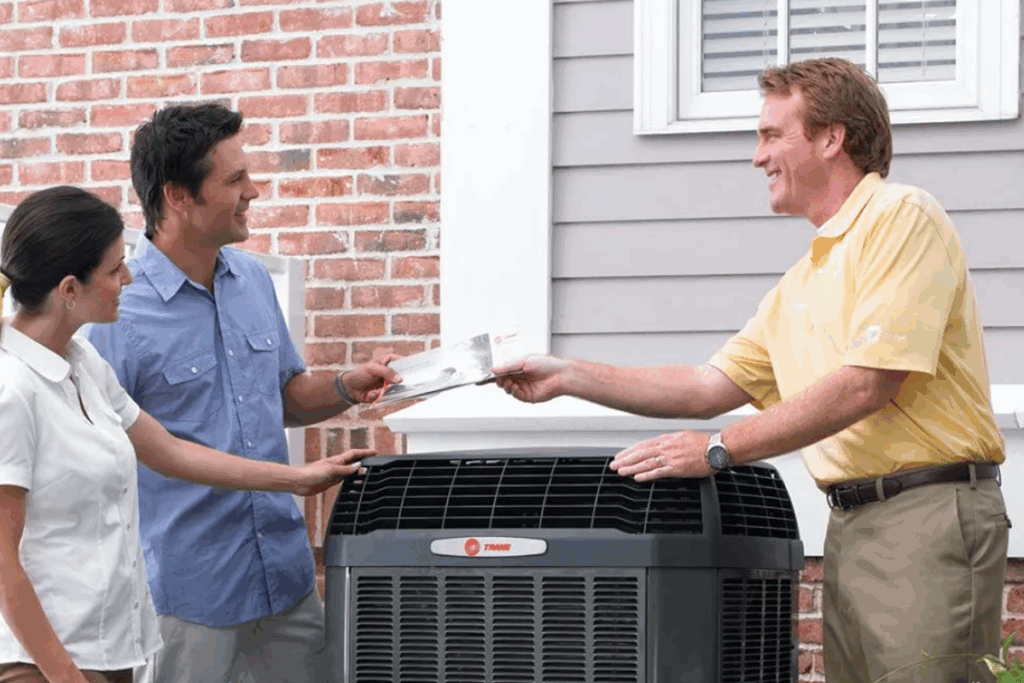Expertise and Experience
Our team, with decades of experience across the South, knows exactly what type of cooling system suits your home or business. Like a wise old turtle navigating the sea, we’ve navigated the HVAC industry, ensuring that each installation is tailored to meet your specific needs.
Trust and Authority
As a locally owned business committed to the Melbourne, FL area, we pride ourselves on being upfront and Turtley Honest. We don’t just install AC units; we build relationships based on trust and transparency. No surprise charges or fees—just clear, cool, and comfortable service.
Energy Efficiency
With the Florida heat bearing down like the sun on a turtle’s back, having an energy-efficient AC system isn’t just nice; it’s necessary. Our systems are designed to keep your space cool without making your energy bills soar.
Maintenance Plans
Just like a turtle needs to check its shell, your AC needs regular check-ups. Our $149 membership offers two check-ups every year, plus discounts on repairs, indoor air quality products, and even system replacements. It’s the best bang for your buck for peace of mind and continuous comfort.
Inconsistent Temperatures Across Your Home
If certain rooms or areas in your home are significantly cooler or warmer than others, this inconsistency could indicate that your AC system is no longer able to distribute air effectively.
Frequent Repairs
An air conditioning system that requires constant repairs or has become increasingly unreliable signals that it’s nearing the end of its useful life.
Rising Energy Bills
Noticeable increases in your energy bills, especially during months of heavy AC use, can indicate that your system is losing efficiency.
Your AC Is More Than 10 Years Old
The lifespan of a well-maintained air conditioning unit is typically between 10 to 15 years. If your system is within or beyond this range, its efficiency and performance could be diminishing.
Excessive Noise or Odor
Unusual sounds or smells can indicate mechanical or electrical issues that may require system replacement.
Humidity Problems
Signs of excessive humidity may indicate your AC system isn’t removing moisture effectively and may need an upgrade.
R-22 Freon Usage
If your AC system uses R-22 Freon, it’s time to consider a replacement as it’s being phased out due to environmental concerns.
Service Areas
Melbourne, Indialantic, Melbourne Village, West Melbourne, Palm Bay, Port Canaveral, Cape Canaveral, Cocoa, Canaveral Air Station, Patrick Afb, Port Saint John, Cocoa Beach, Eau Gallie, Indian Harbor Beach, Indian Harbour Beach, Satellite Beach, Viera, Fellsmere, Grant, Malabar, Melbourne Beach, Merritt Island, Rockledge, Roseland, Sebastian, Sharpes, Vero Beach, Tropic, Indian River Shores, Orchid, Wabasso, Winter Beach, Barefoot Bay, Micco
Offering the Best Options for Your AC Installation Needs
We work with a wide range of air conditioners. Our HVAC technicians are well-trained and experienced with nearly all systems available. Here are the types we install:
Central Air Conditioning System
Cools your entire home via ducts and consists of an outdoor and indoor unit. Great for whole-house comfort in hot climates.
Heat Pumps
Provides both heating and cooling by transferring heat in or out of your home. Energy-efficient and cost-saving.
Ductless Mini Split System
Ideal for homes without ducts or new additions. Provides room-by-room temperature control and energy efficiency.
Energy-Efficient Upgrades
Includes advanced features like programmable thermostats and high-efficiency components to lower energy costs.
Discover Easy Financing Options with Turtley Awesome!
Don’t let budget concerns keep you from comfort. We offer flexible financing tailored to fit your budget—whether installing a new system or upgrading.
Flexible Payment Plans
Pay over time with options that fit your lifestyle.
Competitive Rates
Low-interest rates make your investment in comfort more affordable.
Easy Approval Process
Quick and simple—get your new system installed without delays.
No Hidden Fees
Transparent pricing with no surprises. What you see is what you get.
Ready to Stay Cool Without Breaking the Bank?
Let’s make your home the oasis of comfort it should be—with manageable payments and top-quality installation. Contact Turtley Awesome today to learn more.


